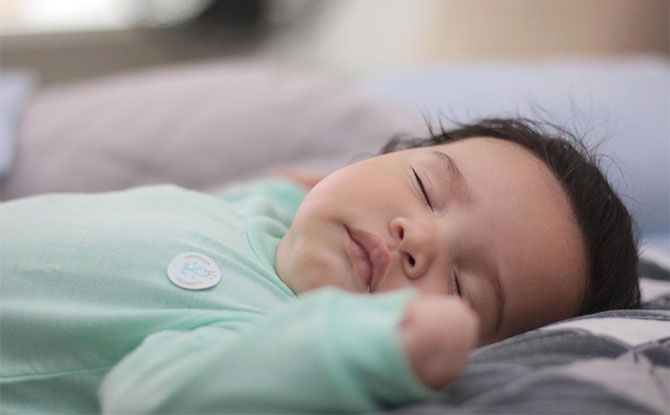
Sleep is an essential component of a child’s general health and wellbeing is sleep. It plays a vital role in their physical and mental development. A lack of sleep can have a visible impact on their health and behaviour.
We asked two paediatricians from the Healthway Medical Group, Dr Annette Ang and Dr Jenny Tang, about sleep disorders in children and what parents should keep a look out for.
Sleep Disorders in Children
What are some common types of sleep disorders faced by children?
Dr Jenny: Common types of sleep disorders in children vary with the age of the child.
Behavioural insomnia of childhood including sleep onset association disorder and limit setting disorder tends to starting in early infancy and toddler years, while parasomnias including night terror, confusional arousal and sleep walking as well as obstructive sleep apnoea (OSA) tends to occur in toddlers and older children.
BE PSLE-READY: Join Expert Educators for Revision Boosters to Empower P6 Students
BURP: Join the Sound Collector on a Whimsical Chase at Esplanade – Theatres on the Bay
WEEKEND IDEAS: Get Inspirational Ideas of Things to Do
Chronic sleep insufficiency is common especially amongst school-going children who often have less sleep than what they need due to school-related pressure and family schedules.
This is also often seen in adolescents where a shift to later bedtimes related to physiological changes in body clock, school-related demands, family and social pressures as well as use of electronic devices could result in chronic sleep deprivation.
Dr Anette: In my practice, the most common sleep disorder managed is that of children with snoring and obstructive sleep apnea (OSA). Sleep-disordered breathing (SBD) is used to describe snoring and OSA syndrome.
Snoring and OSA are common medical conditions that affect 15 to 50% of adult population worldwide. These conditions affect children too.
Snoring, due to the vibration of tissues in the throat, can be a symptom of partial airway obstruction. The partial obstruction can lead to complete airway obstruction, leading to OSA. With upper airway obstruction, the oxygen supply to the brain, heart and vital organs is transiently reduced.
This results in other medical complications, such as heart disease and stroke, over a long period of time.
Snoring is sometimes accompanied with mouth breathing. Prolonged mouth breathing may result in an open bite as the child’s jaw grow and develop over time.
2. Are any of these sleep disorders more prevalent in Singapore and how common are these sleep disorders?
Dr Jenny: Studies indicate that sleep problems are very common amongst children and adolescents, with prevalence rates ranging from 25% to 40%. These problems are even more prevalent amongst certain populations, especially children with special needs such as ADHD and Down syndrome, where more than 80% may suffer from sleep disturbances.
Estimates for prevalence amongst children in Singapore would be similar. Prevalence of OSA in children in Singapore is estimated to be about 3%. In a study on obese children, prevalence was found to be almost 60%.
Obesity rates in Singapore are on the rise, especially among children and adolescents. The proportion of primary, secondary and pre-university students under 18 who were overweight rose from 13% in 2017 to 16% in 2021.
With this increase, the prevalence of OSA in children is also likely to have increased.
3. What are signs of sleep disorders in a child?
Dr Jenny: When screening for sleep disorders, we tell parents to look for habitual snoring, frequent arousals from sleep, difficulty in falling asleep or waking up, paroxysmal events in sleep (e.g. night terrors, sleep walking and head banging) and daytime symptoms.
Daytime symptoms are usually related to insufficient sleep or poor quality of sleep. Here are some examples:
- Excessive daytime sleepiness
- Fatigue, lethargy and somatic complaints
- Impairment of mood and behavioural control such as irritability, anger tantrums, hyperactivity and inattention
- Impairment of cognition and vigilance
- Declining performance in school, sports or games
- Compromised immune system and affected appetites
- Overuse of potentially harmful alertness-promoting agents such as caffeine and nicotine
- Increased risk-taking behaviour and injuries including sports, occupational and motor vehicle injuries
Generally, if there are signs of impairment of sleep and daytime function then we will need to rule out a sleep disorder.
Dr Anette: A child may be noted to be snoring while sleeping, or using the mouth to breathe when sleeping. The child may complain of fatigue or be excessively sleepy in the daytime despite a good eight to nine-hour sleep period.
Some children complain of morning headaches or have difficulty staying focused in the classroom, thereby affecting their school performance.
4. What are the ways to mitigate such sleep disorders and to build better sleep hygiene?
Dr Jenny: Prevention is best, failing which early diagnosis and intervention can minimise consequences.
Educate parents and caregivers including nannies, grandparents, school teachers and older children on the key elements of sleep i.e., importance and function of sleep, average sleep duration based on age, good sleep hygiene, prevention of sleep onset associations, as well as recognition of symptoms and signs of common sleep problems.
We encourage bringing children to seek early medical attention for concerns and questions.
Dr Anette: For a start, a strict bedtime routine should be established and maintained for all school-going children.
Recommendations include avoidance of any screen-based devices for at least an hour before bedtime, allowing for at least nine hours of sleep in their daily routine and ensuring a dark and cool bedroom for bedtime.
Addressing Questions about Sleep Disorders in Children
Thank you, Dr Jenny and Dr Annette for helping to address these questions that parents have about sleep disorders in children.






















